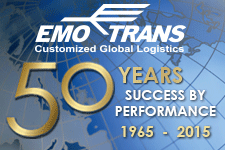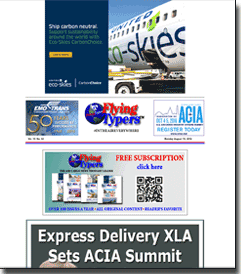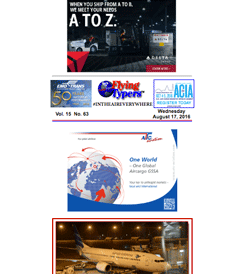 Here in Part II of Vital Views we
continue our series of thoughts generated by individuals
that have appeared in our pages since we began
publishing in 1975. Here in Part II of Vital Views we
continue our series of thoughts generated by individuals
that have appeared in our pages since we began
publishing in 1975.
Richard Malkin has covered the air
cargo business since 1942, and today at 103 years
of age he has edited these comments, which will
continue through the remainder of 2016.
Vital Views is offered during a time
of change in air cargo. It attempts to reach back
into our past and recall outlooks that might help
inform us when dealing with the challenges of
today.
|

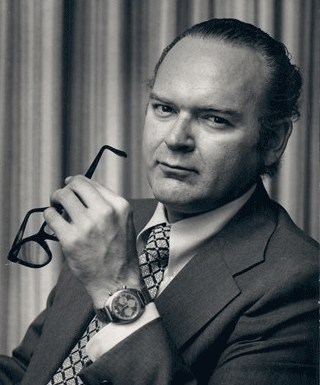 New
Deal Forwarders . . .The late George A. Shipman
(2010, age 73), was a management consultant and
air cargo industry veteran (AA Cargo 25 years),
with a particular wit and wisdom who for us in 1986
trained the spotlight on the cargo agent. New
Deal Forwarders . . .The late George A. Shipman
(2010, age 73), was a management consultant and
air cargo industry veteran (AA Cargo 25 years),
with a particular wit and wisdom who for us in 1986
trained the spotlight on the cargo agent.
“Today the agent
is perceived differently than in the past because
he is functioning in a different role than before.
“By definition,
the agent is the agent of an air carrier.
“Traditionally
this definition drew a line between agent and consolidator.
“In the new
environment, however, that line has proved to be
as formidable as the Maginot Line.
“Consequently,
the carrier who views the air cargo agent in a subordinate
and plans his marketing efforts around that assumption,
simply is not being realistic. The agent no longer
is directing his primary effort toward promoting
freight per se, but is functioning as a negotiator
for the shipper,” George Shipman declared
in 1986. |
 |
Saw Info
Tech As Key 20 Years Ago . . . John Radziwill,
who headed Radix Group International in 1997, disclosed
that “within the orbit of Radix, computer utilization
plays an increasingly vital role in maintaining a fluid
distribution system on behalf of the exporting and importing
community of which air carriage is an essential part.
“My personal view
is that the computer will continue to play an important
role in the transportation industry.
“Essentially, we
are becoming a communications/logistics company.”

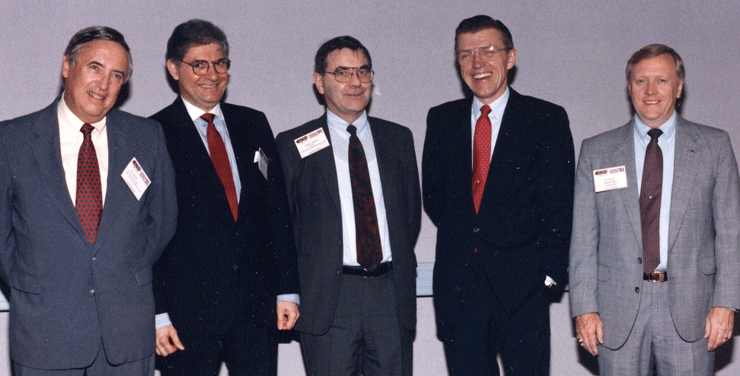
Here networking at the 1990 CNS
Partnership Conference in Dallas are (L to R) first
CNS President Jack Lindsay, second CNS President
Anthony (Tony Calabrese), while original CNS Board
Members Brian Barrow and Buz Whalen flank American
Airlines CEO Robert Crandall. |
The Need
For Partnerships . . . Brian P. Barrow, Cargo Network
Service’s (CNS) board member, stated in a 1991
editorial:
“As the years wore
on and the industry moved out of the piston-engine era
and into the jet era and then into the widebody era,
the reasons for mutual fault-finding and sniping grew
more complex even as the industry expanded, gained in
sophistication and started to show real muscle.
“Still, while all
this was building, there was indisputable consciousness
on both sides that they were fated partners; they needed
each other.
“If not exactly
Damon and Pythias, their interests coincided—at
least up to a point,” Mr. Barrow declared.

 Send
Customs Just The Fax . . . In 1990 Joseph Le
Louarn, regional director of Customs at Roissy,
France, addressing a Manhattan audience
of international traders, advised American shippers
to his country to “lend speed to the transmission
of information concerning the movement in order
to free all or part of the shipment as soon as it
is unloaded at Paris’ Charles De Gaulle Airport.” Send
Customs Just The Fax . . . In 1990 Joseph Le
Louarn, regional director of Customs at Roissy,
France, addressing a Manhattan audience
of international traders, advised American shippers
to his country to “lend speed to the transmission
of information concerning the movement in order
to free all or part of the shipment as soon as it
is unloaded at Paris’ Charles De Gaulle Airport.”
The official added:
“If a consolidator can send by fax a copy
of the master or house air waybill along with references
which can be agreed upon at the start of the procedure,
then there is surely some work we could do together.
“This is assuming
there is a good working relationship among the U.S.
consolidator, his representative in Paris, the airline,
and customs authority.
“I am prepared
to try anything toward this end.” |

Emerging
Forwarder Medium Well Done . . . Roger A. Haack, president, Greene Companies International,
Inc. reported in 1985 that “an important new trend is developing in
the United States air freight industry—the re-emergence
of the medium-size cargo agent as a significant factor
in moving goods overseas.”
Noting satisfactory business
conditions for his company until the latter 1970s, there
was a turnaround with the advent of deregulation, giving
“rise, among other things, to rate wars that enabled
very large consolidators to gain control of increasing
amounts of freight.”
Haack cited observers
who predicted that the only survivors of deregulations
would be the giant multinationals. Nevertheless, he
stated:
“One sign that bodes
well for the future of medium-sized forwarders is the
general bottoming-out and increasing stabilization of
freight rates which has put such companies in an improved
competitive position, particularly with those shippers
that place a great deal of emphasis on price.”

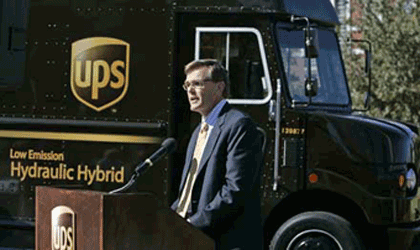 Growth
Overcomes All Obstacles . . . David Abney chief operating officer – UPS
and president, UPS Airlines in 2007, offered these words of change and challenge: “The
air cargo industry has seen much change and many challenges
in the past year. Growth
Overcomes All Obstacles . . . David Abney chief operating officer – UPS
and president, UPS Airlines in 2007, offered these words of change and challenge: “The
air cargo industry has seen much change and many challenges
in the past year.
“There are the economic
and regulatory pressures, security, and environmental
concerns, rising fuel prices and ever-expanding supply
chains made efficient with globalization and effective
network management.
“Despite these challenges,
the demand for air cargo and express shipments has continued
to grow—and is forecasted to keep growing to support
global sourcing, production, distribution, and consumption.”

Vital Views Part I, Click Here.
|
